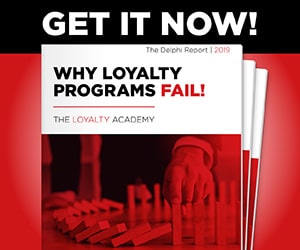Following the panel at Loyalty Expo addressing the convergence of payments and loyalty (see Part 1 of this post), I had the opportunity to sit down with Leslie McNamara, Executive Vice President, Partner Management, Citi Retail Services. In our time together, we discussed the future of private label cards in the US, as well her continuing efforts to break new ground in the evolution of the relationship between card issuers and their retailer clients.
Leslie has been in the payments industry for nearly 25 years and leads Citi Retail Services’ credit program activities across more than 20 retail and oil portfolios including Sears, The Home Depot, Macy’s and Shell. A division of Citigroup, Citi Retail Services provides consumer and commercial credit card products, services, and integrated retail solutions to national and regional retailers across the U.S. The business currently services more than 80 million credit accounts and has assets of nearly $40 billion.
Citi Retail Services approaches its business with a fresh perspective and provides a surprising set of services designed to bring extraordinary value to its clients. Apart from the expected credit related services, the business offers data insight services, conducts market research, maintains online panels of consumers to understand competitive wallet share and trends, and provides mystery shopping services, all with the goal of improving customer experience.
The overall goal of this approach is to position Citi Retail Services as a trusted advisor with clients rather than simply a vendor of card issuing services. Leslie described core mission of the business as a “commitment to create top-line growth for retailers and to make PLCC an instrument to improve sales.”
Leslie is optimistic about the future of PLCC, emphasizing that consumers don’t view their store charge cards as a credit product, but as a method to enable purchases. “The customer should think the private label card is the smartest way to pay in the store”, said Leslie, adding that “the fact that the product is the lowest cost payment method for retailers makes it highly valuable for all parties”.
To make PLCC truly relevant to the customer experience, Citi Retail Services enables “hot builds” and credit approvals in real time at the point of purchase. Leslie’s philosophy is that the issuer must be available to both the retailer and the customer in the moment of purchase decision.
Because people today have fewer cards in their wallet and are more savvy about using the private label card to shield their bankcard line from higher usage, Leslie was proud to share that the average FICO scores among PLCC cardholders are the same or better than in the branded card area.
Looking into the future, Leslie acknowledged the emergence of many disruptive marketing technologies offering mobile wallets and alternative payment systems. She noted the present system works well enough for most consumers and that establishing a broad acceptance network for the start-up competitors will be a challenge. Another challenge for the disruptors she mentioned was the focus on gathering data for themselves. Citi Retail Services, on the other hand, helps its clients leverage their own data, creating trust and value in the business relationship between issuer and retailer.
When asked about Merchant Customer Exchange (MCX), Leslie was quick to say the group provides a needed voice in the industry for retailers. At the same time, she reminded me of the core mission and commitment to create top-line growth for its clients. As I listened to her describe her passion to create stronger bonds with her clients, I realized that it might be this positive outlook that will help Citi Retail Services relieve the inherent conflicts with its retailers over interchange fees and create a new model for PLCC issuance.




